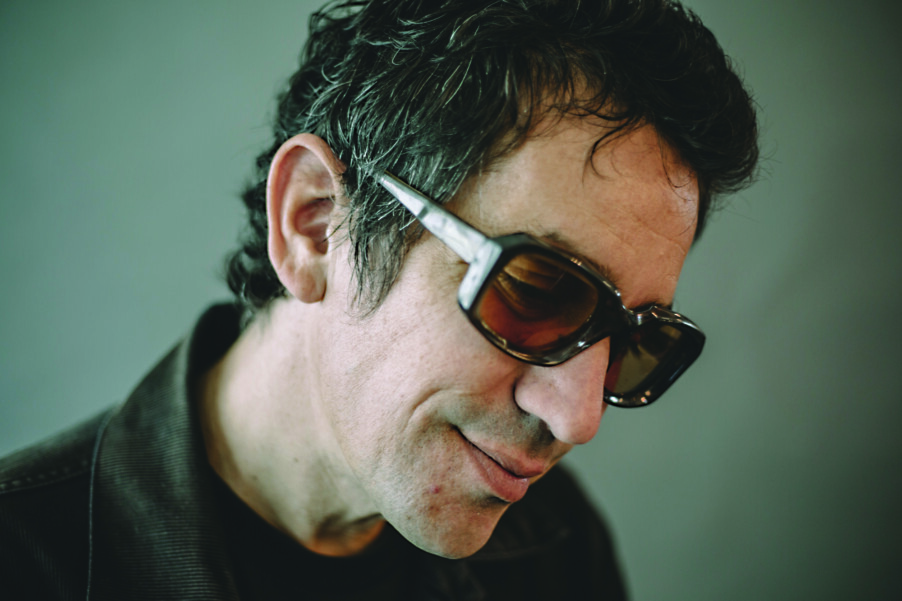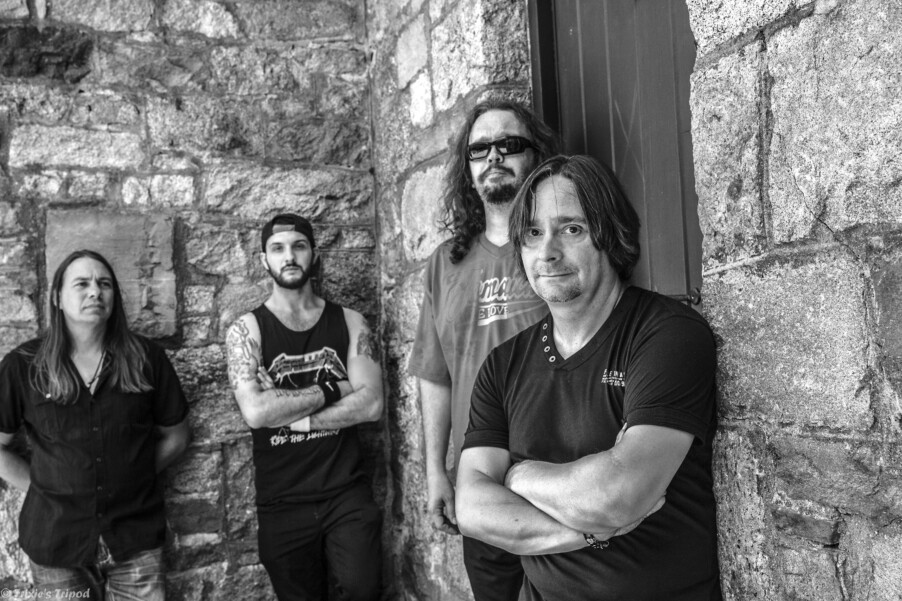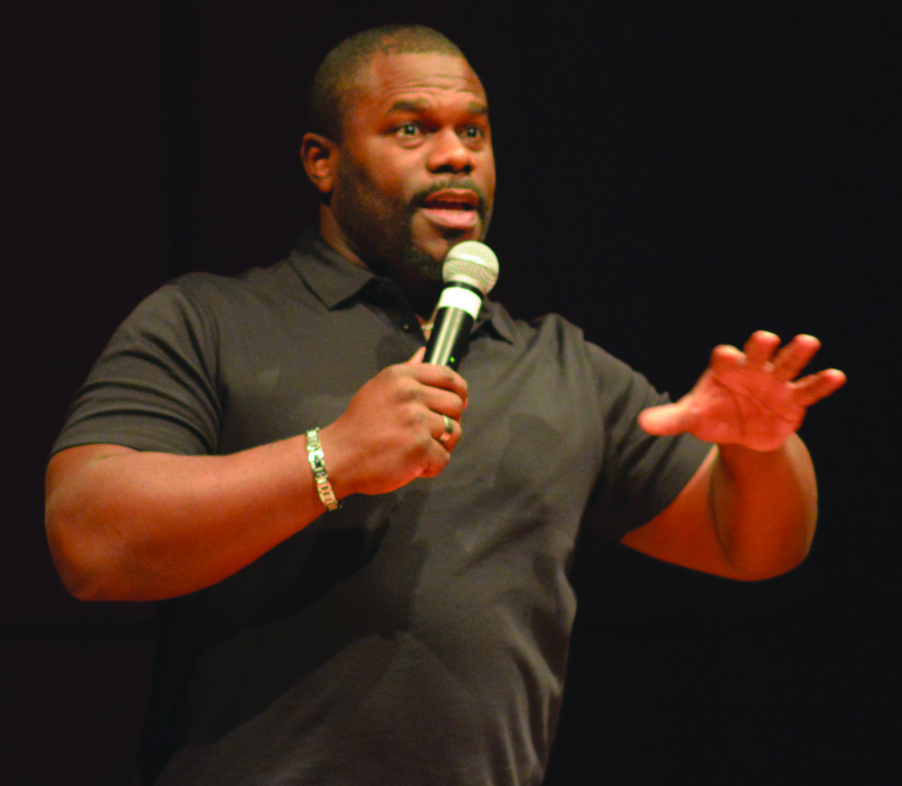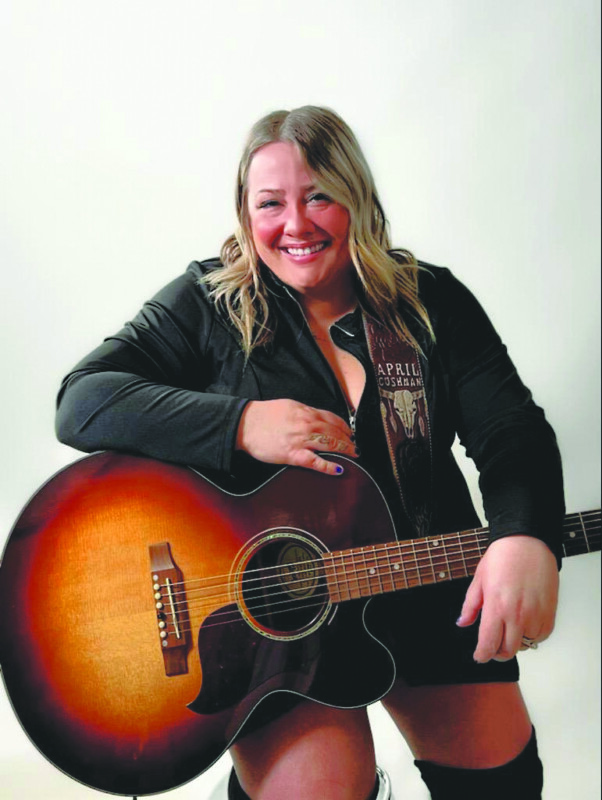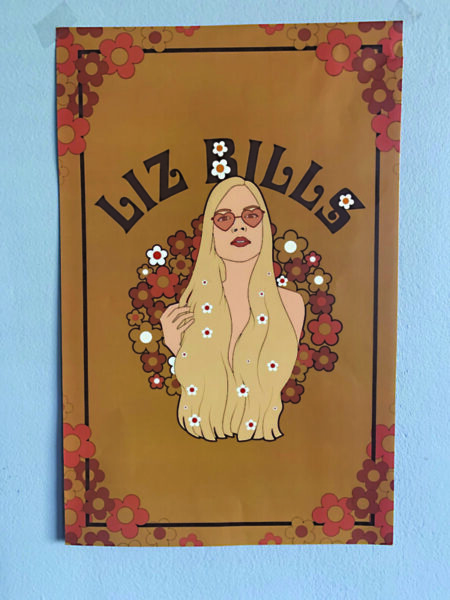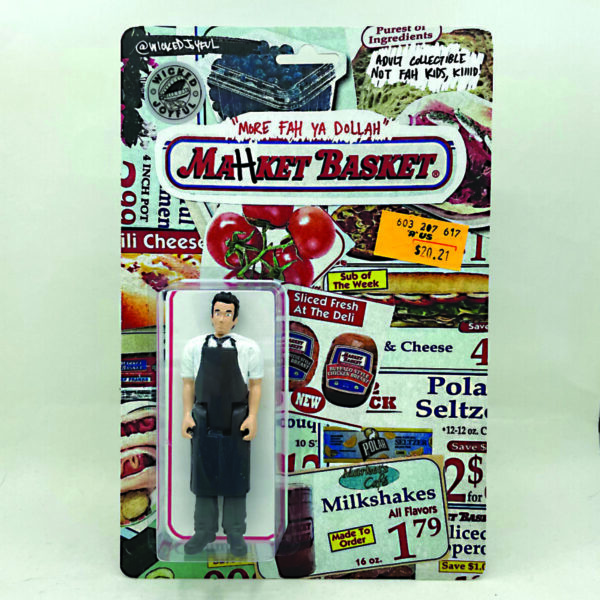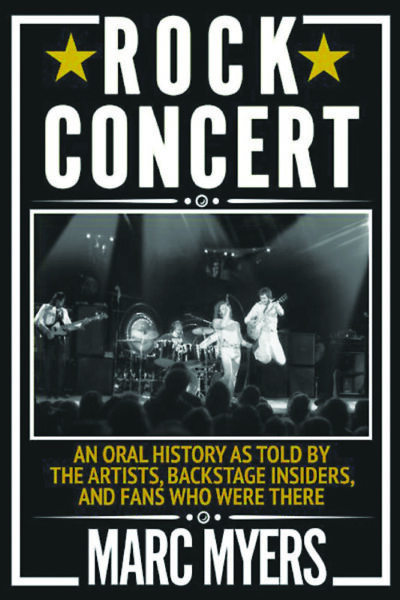Music, comedy and more for New Year’s Eve
Send off 2021 in style with music, comedy and more on Friday, Dec. 31. Know of a party not mentioned here? Let us know at music@hippopress.com.
• 603 Bar & Lounge (368 Central Ave., Dover, 742-9283) A night of DJs offers Sex on Decks with support from DJ Deja and Pete Vitello. 9 p.m.
• 815 Cocktails & Provisions (815 Elm St., Manchester, eventbrite.com) $100. The theme at this downtown speakeasy is Red Carpet — think Music Awards, and the fun wardrobe that goes with that. Open bar, eats, dancing, unlimited photo booth, midnight Champagne toast. 9 p.m.
• Alan’s (133 N. Main St., Boscawen, 753-6631) NYE with Stray Dog, $15 per person, 8 p.m.
• American Legion Post 47 (551 Foundry St., Rollinsford, 742-5833) Acoustic Radio fifth annual bash with opener Aunt Peg, $15, with prime rib dinner available. 7:30 p.m.
• American Legion Post 70 (169 Walton Road, Seabrook, 474-2430) Ghost Riderz rock in the New Year, $20 per person. Starts at 9 p.m.
• American Legion Post 98 (43 Baboosic Lake Road, Merrimack, 429-0343) Kid N’ Play Style New Year’s Eve Bash with a mix of ’80s/’90s hip-hop and R&B music. 9 p.m.
• Angel City Music Hall (179 Elm St., Manchester, 931-3654) Rock in 2022 with Everybody Wants Some – A Tribute to Van Halen ’78-’84; The Hellion – Judas Priest Tribute; and Caliente Pistolas. $50 dinner buffet by Chef Sean, Champagne toast at midnight. Starts at 7 p.m.
• Area 23 (State Street, Concord, 881-9060) With edgy new song “Deathmask,” Faith Ann Band performs, joined by special guests Alfredo Benavides and Ben Harris. 7 p.m.
• Ashworth by the Sea (295 Ocean Blvd., Hampton, 926-6762) Party with a live band, hors d’oeuvres and a seated surf & turf dinner, a cash bar, late-night snack, midnight Champagne toast, and fireworks on the beach. DJ dancing. 6:30 p.m.
• Auburn Pitts (167 Rockingham Road, Auburn, 622-6564) Stuck In Time Band performs ’60s, ’70s and ’80s covers, with free buffet and midnight Champagne toast. 8 p.m.
• Backstreet Bar & Grill (102 Plaza, 76 Derry Road, Hudson, 578-1811) DJ Bobby Lane leads a dance party. 8 p.m.
• Bank of NH Stage (16 S. Main St., Concord, eventbrite.com) $45 to $90. Shuttavac NYE Spectacular is inspired by the bold speakeasies of the Roaring 1920s to the iconic New York nightclubs of the 1970s, where people escaped to celebrate in inclusive, bold and glamorous worlds. 8 p.m.
• Belmont Hall & Restaurant (718 Grove St., Manchester, 625-8540) New Year’s Eve dance party with DJ Hustle Boy, $55, cash bar. 7 p.m.
• Blue Ocean Music Hall (4 Oceanfront North, Salisbury, Mass., 462-5888) The tradition continues with a New Year’s Eve bash starring The Fools & Psychedelic Relics, with optional dinner buffet. Champagne toast, party favors and midnight balloon drop. Dinner and show $92; show only $28 general admission. 7 p.m.
• Bonfire Restaurant & Country Bar (950 Elm St., Manchester, 217-5600) Martin & Kelly perform country rock. 9 p.m.
• Boston Billiard Club (55 Northeastern Blvd., Nashua, 943-5630) Live music from The Apathetics, $10 cover. Reserve a pool table for the night for $175. Includes an appetizer platter, bottle of Champagne and the cover is waived for up to four people in your party. 9 p.m.
• Breezeway Pub (14 Pearl St., Manchester, 621-9111) Drag Roulette Fridays. 8 p.m.
• Bridgewater Inn (367 Mayhew Turnpike, Bridgewater, 744-3518) Mystical Magic performs downstairs, with DJ upstairs spinning all night long. $45 per person includes buffet (5:30 to 7:30 p.m.) and party; $20 for party only. Hats & tiaras, noisemakers, beads and Champagne toast. 8 p.m.
• Buckey’s (240 Governor Wentworth Hwy., Moultonborough, 476-5485) Red Hat Band plays its traditional NYE set. 9 p.m.
• Cask & Vine (1 East Broadway, Derry, beerfests.com) Celebrate this gastropub’s 10th year with its NYE masquerade party. $25 deposit will be applied to the bill. Includes midnight Champagne toast. 6 p.m.
• Castleton Banquet and Conference Center (58 Enterprise Dr., Windham, eventbrite.com) $200. Dress to impress with three-course meal, open bar all night, 50/50 raffle, Joey Dion from Main Event Entertainment, photo booth, midnight Champagne toast. 7 p.m.
• Central Ale House (23 Central St., Manchester, 660-2241) Gatsby Gala Midnight Masquerade with 1920s style dress code, midnight Champagne toast. Starts at 6 p.m. Email info@centralalehouse.com to RSVP.
• Cercle National Club (550 Rockland Ave., Manchester, 623-8243) Drink specials, party favors and Plan B playing rock covers at this members club. 6 p.m.
• Chen Yang Li (520 South St., Bow, 228-8508) Great Gatsby party hosted by DJ Kenny P. 8 p.m.
• Chop Shop (920 Lafayette Road, Seabrook, 760-7706) An evening of active rock with Leaving Eden and Band, Inc., led by 18-year-old singer and bassist Giuliana Amaral. 6:30 p.m.
• Chunky’s Cinema Pub (151 Coliseum Ave., Nashua, headlinersnh.com) Two events: Comedy with Matt Barry, James Dorsey and Greg Boggis in one room, Dueling Pianos in another. $30 each show, 7 and 10 p.m.
• Chunky’s Cinema Pub (707 Huse Road, Manchester, headlinersnh.com) Two events: Comedy with Joe Yannetty, Joey Carrol and Mark Scalia in one room, Dueling Pianos in another. $30 each, 7 and 10 p.m.
• Coach Stop (176 Mammoth Road, Londonderry, 437-2022) Pete Peterson performs an early set. 7 p.m.
• Common Man (88 Range Road, Windham 898-0088) Singer-songwriter Karen Grenier performs an early set. 6 p.m.
• Concord Holiday Inn (172 Main St., Concord, 224-9534) Comedy with Mike Donovan and Amy Tee, dancing and toast — with dinner and room $276 per couple, dinner-only $188 per couple, $94 single. 8 p.m.
• Copper Door (41 S. Broadway, Salem, 458-3033) Jodee Frawlee plays an early set. 3 p.m.
• Copper Door (15 Leavy Dr., Bedford, 488-2677) Jordan Quinn plays an early set. 3 p.m.
• CR’s (287 Exeter Road, Hampton, 929-7972) Rico Barr Trio playing holiday hours 5 to 11 p.m.
• Crow’s Nest (181 Plaistow Road, Plaistow, 974-1686) DJ Golo provides the music with prizes, giveaways and extended hours. 9 p.m.
• Derryfield (625 Mammoth Road, Manchester, 623-2880) Chad LaMarsh rocks the party. $20 a ticket includes admission to see the music, Champagne toast at midnight and party favors. 9 p.m.
• Farm Bar & Grille (1181 Elm St., Manchester, 641-3276) The Gold Everything Party: Jam’n 94.5’s DJ Sammy Smoove and Boston’s DJ Real Ace spin top 40, hip-hop and Latin hits. Gold attire is encouraged but not mandatory for entry. $25. 8 p.m.
• Flying Monkey Movie House (39 Main St., Plymouth, 536-2551) Comedian Bob Marley is back, performing three times, at 3, 6:30 and 9 p.m. Tickets start at $39.50. 8 p.m.
• Fody’s (9 Clinton St., Nashua, 577-9015) Joe Wedge Experience performs. 9 p.m.
• Fody’s Derry (187 1/2 Rockingham Road, Derry, 404-6946) Pop Roks plays fun covers. 9 p.m.
• Fratello’s (155 Dow St., Manchester, 624-2022) Clint LaPointe plays. 8 p.m.
• Fratello’s Italian Grille (194 Main St., Nashua, 889-2022) Justin Jordan entertains. 9 p.m.
• Gibb’s Garage Bar (3612 Lafayette St., Portsmouth, portsmouthnh.com) Elijah Clark plays an early set at this throwback automotive-themed restaurant. 7 p.m.
• Grill 28 (200 Grafton Road, Portsmouth, 766-6466) Dave Gerard of Truffle plays an early set. 6 p.m.
• Headliners (700 Elm St., Manchester, 988-3673) Open after a long hiatus, with three comics and DJ spinning in the ballroom. Packages include food, drink and dancing, starting at $40. 8 p.m.
• High Octane (1072 Watson Road, Laconia, 527-8116) Masquerade party with EXP Band playing, best mask cash prize, Champagne toast as this Lakes Region club celebrates its first anniversary. 8 p.m.
• Hillsboro Moose Lodge (15 School St., Hillsboro, 464-6024) Cellar Dwellers, Superbug and Probable Cause perform, with a Champagne toast at midnight plus snacks, appetizers and food. $10 in advance, $15 at the door. 6 p.m.
• Homestead (641 Daniel Webster Hwy., Merrimack, 429-2022) Ralph Allen performs. 6:30 p.m.
• Jimmy’s Jazz & Blues Club (135 Congress St., Portsmouth, ticketmaster.com) Grammy-winning jazz pianist Eddie Palmieri & La Perfecta Big Band perform. $375 to $425. 7 p.m.
• Jocelyn’s (355 S. Broadway, Salem, 870-0045) Brian Walker performs an early set. 6 p.m.
• L Street Tavern (17 L St., Hampton, 967-4777) Craig LaGrassa performs. 8 p.m.
• LaBelle Winery (345 Route 101, Amherst, 672-9898) New Year’s Eve dinner with Freese Brothers Big Band followed by a stroll through the LaBelle Lights. $121.50. 9 p.m.
• Lynn’s 102 Tavern (76 Derry Road, Hudson, 943-7832) Sindicate rocks in the new year. 9 p.m.
• Murphy’s Taproom (494 Elm St., Manchester, scampscomedy.com) Dancing Madly Backwards follows a comedy show with Dave Rattigan, Chris Cameron, E.J. Murphy and Casey Crawford. $22. 8 p.m.
• Music Hall (28 Chestnut St., Portsmouth, themusichall.org) $38, Champagne Pops, Portsmouth Symphony Orchestra led by special guest conductor Dr. Dirk Hillyer and guest vocalist Jacyn Tremblay, performing selections from Frozen, The Greatest Showman, Cabaret, Chicago, The Godfather, West Side Story and a collection of Gershwin swing favorites. 8 p.m.
• Nan King Restaurant (222 Central St., Hudson, 882-1911) Patty Shock’s Energizer Karaoke provides entertainment. 8 p.m.
• Palace Theatre (80 Hanover St., Manchester, 668-5588) Recycled Percussion is again home for the holidays — ring in 2020 with junk rock. Two shows, 4 and 7:30 p.m. $35 to $45.
• Pasta Loft (241 Union Sq., Milford, 672-2270) Fatha Groove fills the dance floor. $10 includes Champagne toast at midnight. 7 p.m.
• Pats Peak Ski Area (686 Flanders Road, Henniker, 728-7732) New Year’s fireworks (slopes close at 10 p.m.) and dancing to The McMurphys in the Sled Pub. 6 p.m.
• Penuche’s Ale House (6 Pleasant St., Concord, 228-9833) NYE party with Felix Holt. 9 p.m.
• Players’ Ring Theatre (105 Marcy St., Portsmouth, 436-8123) Lady Ro drag show is back after two years. 10 p.m.
• Portsmouth Gas Light (64 Market St., Portsmouth, 430-9122) Boston Circus Guild – Welcome to The Show. Cirque du Soleil-inspired evening with live entertainment and DJ music. VIP packages available by emailing brandonburke@portsmouthgaslight.com. 8 p.m.
• Rex Theatre (23 Amherst St., Manchester, 668-5588) Juston McKinney’s Year In Review comes to Manchester, $35 (also New Year’s Day). 8 p.m.
• River Hill Grange (32 Horse Hill Road, Penacook, penacook.org) Midlife Crisis album release party with K Daver, Kinetik, Mass Militia, Livid Rhymer and Quincer. $20 includes free drinks. 7 p.m.
• Rochester Elks Lodge (295 Columbus Ave., Rochester, 332-9700) Bill Vendasi performs at a Mad Hatter’s party, $45 per person includes cocktail hour with appetizers, prime rib or chicken cordon bleu dinner, dessert and midnight toast. 9 p.m.
• Saddle Up Saloon (92 Route 125, Kingston, 369-6962) Bite The Bullet Band plays fourth annual bash, $55 tickets include buffet from 7 to 9 p.m. and a late-night pizza buffet, Champagne toast and party favors. 7 p.m.
• Salt Hill Pub (2 W. Park St., Lebanon, 448-4532) 19th annual New Year’s Eve party featuring Vermont and New Hampshire’s only cowpunk-thunder boogie band, Road Trash. $10 admission, 8 p.m.
• Sawbelly Brewing (156 Epping Road, Exeter, 583-5080) Parker Richards, back for the holidays from Nashville, performs an early set. 5 p.m.
• Shaskeen (909 Elm St., Manchester, 625-0246) Lock The Doors Bash is reprised with limited $50 tickets covering a food buffet, midnight Champagne toast, giveaways, Chris Bennett, a.k.a. DJ Myth, spinning and open bar. The club will be closed to anyone without tickets (21+ only). 8 p.m.
• Sheraton Hotel (250 Market St., Portsmouth, eventbrite.com) Mark Riley, Ryan Gartley and host Steve Scarfo provide the laughs at the 12th annual show presented by Live Free and Die Laughing. Early show $28 (8:30 p.m.), late show $38 (10:30 p.m.).
• Soho Bistro (20 Old Granite St., Manchester, 222-1677) $20 for starters with up to $600 for VIP packages gets you into an elegant NYE party. 9 p.m.
• South Side Tavern (1279 S. Willow St., Manchester, 935-9947) Cox Karaoke hosts with dancing, party favors and Champagne toast at midnight. No cover. 9 p.m.
• Stone Church (5 Granite St., Newmarket, 659-7700) Club d’Elf with special guests John Medeski & David Tronzo. $75. 6 p.m.
• Stonecutters Pub (63 Union Sq., Milford, 213-5979) KJ-Dave O hosts New Year’s Eve karaoke with spot prizes for ugly sweaters and much more fun in store. 9 p.m.
• Stumble Inn (20 Rockingham Road, Londonderry, 432-3210) Swipe Right Band performs. 8 p.m.
• Sweeney Post #2 (251 Maple St., Manchester, 623-9145) The Lexi James Band, with lots of food, lots of great music and lots of fun. 8 p.m.
• The Big House (322 Lakeside Ave., Laconia, 767-2226) Back in the Day plays this Weirs Beach room at 8 p.m. $10.
• The Goat Hampton (20 L St., Hampton, 601-6928) Alex Anthony performs at Hampton Beach’s only country bar at 8 p.m.
• The Goat Manchester (50 Old Granite St., Manchester, 603-4628) NYE party with Those Guys at this club family’s newest location at 8 p.m.
• The Goat Portsmouth (142 Congress St., Portsmouth, 658-4628) Chris Toler plays early. 9 p.m.
• Thirsty Moose (21 Congress St, Portsmouth, 427-8645) Connecticut pop rock band Mattson performs in the basement music space while great beer flows on both floors, 9 p.m.
• Tower Hill Tavern (264 Lakeside Ave., Laconia, 366-9100) $10. Resident DJ Kadence hosts a karaoke NYE party, 8 p.m.
• Tupelo Music Hall (10 A St., Derry, 437-5100) Adam Ezra Group and opening duo Sirsy play with a four-course dinner at 5:30 p.m. for $95; 8:30 p.m. show only is $40, and all tickets include a Champagne toast.
• Tuscan Market & Village (9 Via Toscana, Salem, 912-5467) The Deviant (Mindset X leader Scott Haiduchuk’s acoustic alter ego) performs. 8 p.m.
• Veteran’s Club (118 John Stark Hwy., Newport, 863-3945) $10 for Talkin’ Smack, a popular cover band playing the hits. 7 p.m.
• Village Trestle (25 Main St., Goffstown, 497-8230) Paul Lussier plays an early set. 5 p.m.
• Wally’s Pub (144 Ashworth Ave., Hampton, 926-6954) Boston based rock/pop cover band Down A 5th performs at this party. 9 p.m.
• Waterville Valley Ski Area (1 Ski Area Road, Waterville Valley, 236-8311) Gabby Martin at T-Bars and Henry LaLiberte at Freestyle, with fireworks at midnight. 3 p.m.
• XO Bistro (827 Elm St., Manchester, 560-7998) Acoustic Moxie performs an early set. 6:30 p.m.
• Yankee Lanes (216 Maple St., Manchester, 625-9656) Roll New Year’s Eve three-hour bowling party $99.95 per lane for up to six people. 9:30 p.m.
Featured photo: Courtesy image.


